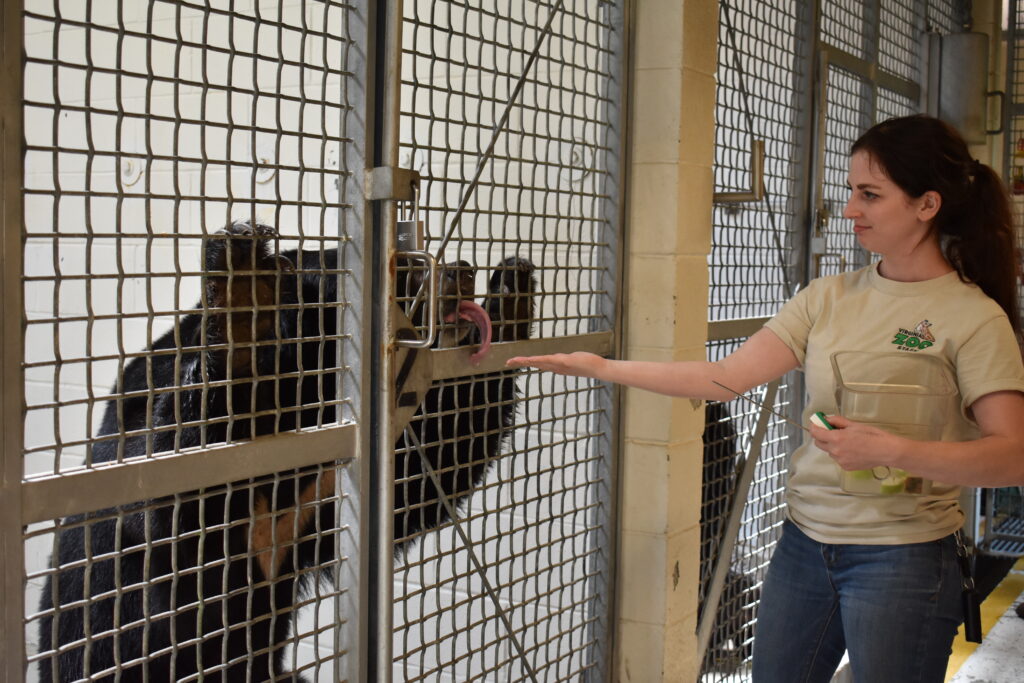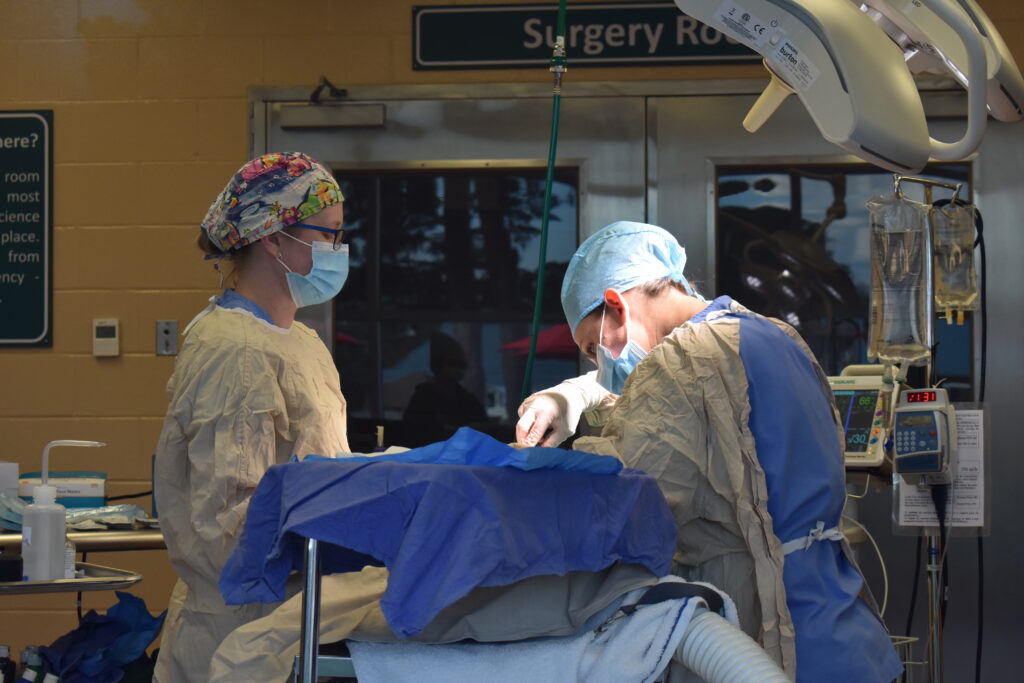Between Animals and People
Working with animals may look and sound like a fun job, and while it is rewarding, it’s a very serious business. Zoo Keepers are responsible for feeding, training, caring for and cleaning up after dozens of animals representing different species every day, among other tasks. Although husbandry is important, Zoo Keepers are also responsible for recognizing when the animals are sick. Animals can become ill for a number of reasons, just as humans do. Not only is a Zoo Keeper and the Zoo’s Veterinarian obligated to help the animals when they are under the weather, but they must prevent transmitting zoonotic diseases.
Zoonotic diseases, also known as zoonoses, are infectious diseases that can be transmitted from humans to animals or vice versa. Zoonotic diseases can be bacterial, viral, fungal, parasitic or protozoal and can be transmitted by contact such as ingestion, through the air by inhalation or by vector, such as mosquitos, rodents, fleas and ticks. The Rabies virus, West Nile virus and Salmonella are some of the most recognizable zoonoses and the Zoo also takes precautions to protect both the animals and their Keepers from diseases such as Eastern Equine Encephalitis, Giardia, and Cryptosporidium.
The Virginia Zoo has a plan in place to prevent zoonotic diseases. First, staff are trained to recognized the signs and symptoms of different diseases. Our Zoo Keepers have a keen eye and notice when even the littlest thing is off about the animals in their care. Second, Keepers will wear gloves, masks, boots and goggles as a precaution when they believe an animal is sick.

Keepers also keep the animals’ environments clean, both indoors and outdoors, and use adequate pest control to keep out potentially harmful insects and rodents. Because water can be the perfect breeding grounds for disease-carrying mosquitos, standing water is also minimized through the use of motion-sensor water bowls.
Most importantly, both staff and animals are vaccinated. Staff receive annual vaccinations and tests for Tetanus and respiratory diseases, such as Tuberculosis. As for the animals, they receive vaccines during routine physical exams and also have fecal tests performed regularly to look for parasites and protozoal organisms.

There have been cases of rabies documented in Norfolk, so the Zoo has a Rabies prevention program in place. Both animal care staff and the animals have been vaccinated against Rabies due to the difficulty in eradicating the disease.
Zoonoses can spread quickly if not properly prevented, however an outbreak of a zoonotic disease is highly unlikely. The Zoo has specific protocols in place to control the spread of disease depending on the severity. the area would be quarantined and traffic limited to only essential personnel. Personal protective equipment including masks, gloves, googles, boots and possibly suits would be utilized. Animal Care staff would work with the state’s veterinarian to control and eradicate the disease if needed.

Zoonotic diseases also exist between pets and their owners, and even though they are rare, it is important to protect yourself at home. To prevent zoonotic diseases at home, here are a few key tips:
- Hygiene is important. Keep hands clean and if you sustain a bite or scratch from an animal, be sure to clean it right away and talk to your doctor if you are concerned.
- Minimize standing water to decrease mosquito breeding grounds, and use organic pesticides when needed.
- Keep outside trash to a minimum to avoid attracting rodents.
- Vaccinate your pets annually.
- Know the signs of different diseases, especially rabies. The Centers for Disease Control (CDC) is an excellent resource for researching more information on diseases, their transmission, clinical signs, and treatments.